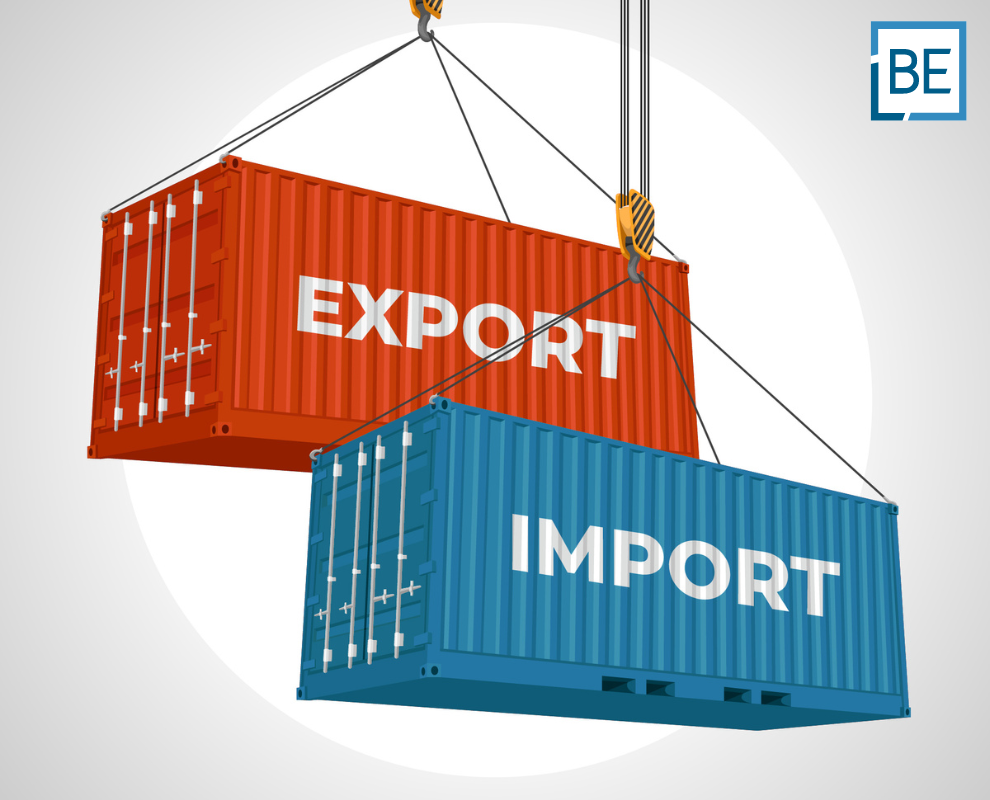création de votre entreprise
Comprendre la licence d'importation et d'exportation en Thaïlande
21/07/2023
Si votre entreprise est impliquée dans des opérations de transport transfrontalier en Thaïlande, il est obligatoire de posséder une licence d'import-export. Avec les licences nécessaires, vous pouvez exporter ou importer des marchandises.
Cet article présente en détail la licence d'import-export en Thaïlande, y compris les réglementations, les étapes du processus et les éléments importants à prendre en compte.
Points clés
- Une licence d'import-export est obligatoire pour les opérations d'expédition transfrontalières en Thaïlande.
- La Thaïlande a des règles strictes en matière d'importation, avec certains produits interdits.
- Certaines marchandises nécessitent des licences d'importation et sont soumises à des contrôles conformes à d'autres réglementations.
- L'importation de produits pharmaceutiques, de minéraux, d'antiquités, d'armes, de munitions, d'explosifs et d'armes à feu à autorisation restreinte est soumise à des réglementations spécifiques.
- L'importation de produits cosmétiques nécessite le respect de spécifications en matière de santé et de sécurité.
- Certains articles tels que les semences, les feuilles de tabac et les arbres nécessitent des autorisations d'exportation.
Qu'est-ce qu'une licence d'importation et d'exportation en Thaïlande ?
Pour mener des opérations d'import-export en Thaïlande, il est nécessaire d'obtenir une licence d'import/export. Une carte douanière valable trois ans peut également être obtenue, fonctionnant comme une "smart card". Différents types de cartes sont délivrés selon les rôles et les responsabilités des individus impliqués : les courtiers en ligne reçoivent une carte dorée, les propriétaires ou les gérants une carte jaune, les avocats une carte verte, et la carte de dédouanement est rose.
Quelles sont les règles et réglementations en matière d'importation en Thaïlande ?
La Thaïlande dispose de règles et de réglementations spécifiques pour tous les envois entrant ou sortant du pays. Toutefois, certains produits ne peuvent être exportés en raison de restrictions légales. Par exemple, l'exportation de riz en dehors de la Thaïlande est strictement interdite. En revanche, l'exportation de certains produits comme le bois, le caoutchouc, les peaux d'animaux, la ferraille et la soie peut être autorisée, mais elle est soumise à des taxes importantes. L'importation d'articles tels que l'or, les animaux ou le sucre nécessite également une licence gouvernementale.
Licence d'importation et contrôles
Le ministère thaïlandais du Commerce classe les marchandises en différentes catégories, chacune étant soumise à des contrôles à l'importation et nécessitant souvent une licence. La liste des marchandises nécessitant une licence d'importation est susceptible d'être modifiée et comprend actuellement environ 50 catégories.
Il est essentiel d'associer la demande de licence à la commande, à la confirmation et à la facturation du fournisseur. De plus, certains produits sont soumis à des réglementations supplémentaires imposées par d'autres lois. Cela inclut les produits pharmaceutiques, le commerce de minéraux, les antiquités, les armes, les munitions, les explosifs, les armes à feu à autorisation restreinte et les produits cosmétiques.
Importation de produits pharmaceutiques
L'importation de produits pharmaceutiques, tels que les médicaments, nécessite l'autorisation de l'Administration des aliments et des médicaments du ministère de la Santé. Cela permet de s'assurer que les médicaments importés répondent aux normes de sécurité et de qualité nécessaires.
Importation de minéraux en Thaïlande
Des règles strictes régissent le commerce des minéraux en Thaïlande. Il est illégal d'importer plus de deux kilogrammes d'oxyde de tungstène, de minerais d'étain ou d'étain métallique sans autorisation préalable. Ces restrictions ont été mises en place pour réglementer et contrôler le commerce des minéraux dans le pays.
Importation d'antiquités et d'œuvres d'art
Pour exporter des antiquités, des œuvres d'art, des pièces de musée et des expositions historiques, il faut obtenir l'autorisation du directeur général des beaux-arts. Cette mesure garantit la protection et la préservation du patrimoine culturel thaïlandais.
Armes, munitions, explosifs et armes à feu à autorisation restreinte
La fabrication, l'achat, l'utilisation ou l'importation d'armes, de munitions, d'explosifs, de feux d'artifice et d'armes à feu à autorisation restreinte sont strictement réglementés en Thaïlande. Une licence du ministère de l'Intérieur est requise pour l'utilisation de ces articles.
Importation de produits cosmétiques
L'importation de produits cosmétiques en Thaïlande nécessite certaines exigences. Les produits doivent être accompagnés d'informations telles que le nom et l'emplacement du bureau et du lieu de fabrication, ainsi que le nom et la composition des produits. Cette mesure vise à garantir la santé et la sécurité publiques.
Licence d'exportation et contrôles
Certains articles, tels que les semences, les feuilles de tabac et les arbres, nécessitent une autorisation d'exportation en Thaïlande. La loi sur les normes d'exportation exige des licences pour les denrées alimentaires telles que le riz et le sucre afin de garantir la qualité des produits destinés à l'exportation. De plus, il est important de noter que les exportateurs de produits agricoles sont souvent tenus d'être membres d'associations professionnelles, qui ont leurs propres règles d'adhésion.
Quelles sont les étapes du traitement des marchandises importées et exportées en Thaïlande ?
Le traitement des activités d'importation et d'exportation en Thaïlande comporte plusieurs étapes. Il est essentiel de les suivre scrupuleusement afin d'éviter toute erreur dans les formalités administratives. Veuillez noter que, dans la plupart des cas, les licences doivent être obtenues au nom d'une société plutôt qu'au nom d'un individu.
Étape 1 : Dépôt de la déclaration officielle
La première étape consiste à remplir le formulaire douanier 99 ou 99/1, soit manuellement, soit à l'aide d'un système EDI (Electronic Data Interchange). Une fois ce formulaire rempli, passez à l'étape suivante.
Étape 2 : Préparation des documents officiels
Rassemblez les documents requis pour la procédure d'importation ou d'exportation. Ces documents incluent les rapports de fret ou les lettres de transport aérien (pour le fret aérien), les connaissements (pour le fret maritime), trois copies de la facture, une liste de colisage, les documents d'assurance, les formulaires de déclaration, les formulaires de transaction étrangère (si nécessaire), une licence d'importation (si nécessaire), les certificats d'origine (si nécessaires), et tout autre document pertinent.
Étape 3 : Déclaration et présentation des documents
À l'arrivée au port d'entrée, soumettez la déclaration d'importation accompagnée des documents justificatifs pour l'inspection douanière. Les autorités douanières vérifieront l'intégralité des documents et leur conformité. Elles évalueront également les droits, les taxes et la valeur des marchandises importées ou exportées.
Étape 4 : Paiement des droits et taxes à l'importation
Les droits et taxes à l'importation applicables peuvent être réglés de diverses manières, notamment en effectuant un paiement au département des douanes, en procédant à un transfert électronique de fonds via BAHTNET de la Bnauq de Thaïlande (BOT - Bank of Thailand), en réalisant un paiement électronique à la Krung Thai Bank ou en effectuant un transfert électronique de fonds (EFT - electronic funds transfer) via EDI.
Étape 5 : Inspection et libération des marchandises en douane
Les inspecteurs douaniers examinent les produits importés ou exportés pour vérifier leur conformité à la déclaration de l'importateur ou de l'exportateur. Une fois l'inspection terminée et que tout est conforme, les marchandises peuvent être remises à l'importateur ou à l'exportateur.
Pour naviguer dans le processus d'import-export en Thaïlande, il est essentiel de bien comprendre les règles, les réglementations et les exigences en matière de licences. Il est nécessaire d'obtenir les licences d'import-export appropriées et de respecter les contrôles spécifiques pour les différentes catégories de marchandises.
Comment Belaws peut-il vous aider ?
Pour plus d'informations sur l'importation et l'exportation de marchandises en Thaïlande, pourquoi ne pas discuter avec l'un de nos experts ?
Veuillez noter que cet article est fourni à titre d'information seulement et ne constitue pas un avis juridique.
Nos consultations durent jusqu'à une heure et sont menées par des juristes experts qui parlent couramment l'anglais, le français et le thaï.
Les consultations peuvent être organisées sur WhatsApp ou sur le Logiciel de Vidéoconférence de votre convenance. Une consultation avec l’un de nos experts juridiques est sans aucun doute le meilleur moyen d’obtenir toutes les informations dont vous avez besoin et de répondre à toutes les questions que vous pourriez avoir sur votre nouvelle entreprise ou votre projet.
150 USD
Jusqu'à 1 heure
Paiement en ligne (Paypal ou carte bancaire)
Les consultations juridiques peuvent être menées en anglais, en français ou en thaï.
Les consultations juridiques sont assurées par des des avocats expérimentés dans les domaines concernés.
Questions fréquemment posées
What is the Treaty of Amity between US and Thailand?
The Treaty of Amity between the United States and Thailand is a special economic bond that grants certain privileges to American citizens and businesses operating in Thailand.
What did the Treaty of Amity do?
The Treaty of Amity allows American citizens and companies to enjoy benefits and rights when establishing and operating businesses in Thailand. It grants national treatment and exemption from many restrictions on foreign investment.
What was the Treaty of Amity and Commerce Thailand 1833?
The Treaty of Amity and Commerce signed in 1833 between the United States and Thailand established a special economic relationship. It provided favorable treatment to American citizens and companies operating in Thailand.
Can Americans own 100% of a Thai company?
Yes, under the Treaty of Amity, American citizens and companies are allowed to hold the majority of shares or wholly own a Thai company. This provides them with greater control and flexibility in managing their business operations.
Articles connexes
Abonnez-vous aujourd'hui
Abonnez-vous aujourd'hui
À notre newsletter pour les dernières actualités juridiques
en Asie du Sud-Est, les mises à jour de Belaws et
les offres spéciales sur nos services.
To our newsletter today for all the latest legal news in South East Asia,
Belaws updates and special promotions on our services.







 Image by
Image by